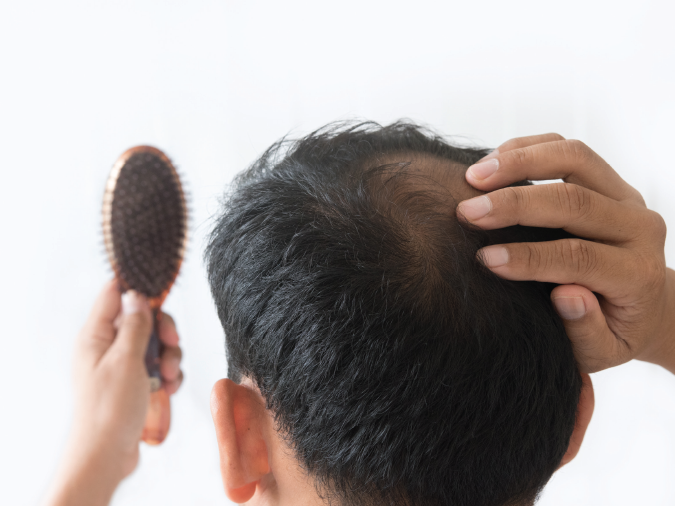Contents
Hair production throughout a lifetime will literally have its ups and downs. Your hair tends to proliferate when you’re young and in good health in general.
For different reasons, the growth process will slow down as you age, including reduced metabolism, hormone changes, and hair follicle changes that are responsible for producing new hair. Healthy hair relies a lot on nutrition.
Folic acid (vitamin B-9) is only one of the nutrients that can promote healthy hair overall when taken regularly as prescribed. Here’s everything you need to know about Folic acid and how it can promote hair growth.

Folic Acid – What It Does
For healthy cell growth, folic acid is primarily responsible. These cells include those present both within the tissues of your skin and in your hair and nails.
Such effects on your hair have stimulated folic acid interest as a potential measure of treatment for hair growth. Additionally, folic acid helps to keep healthy red blood cells.
The synthetic form of folate, a type of B vitamin, is folic acid. This nutrient is called folate when present naturally in foods.
The processed version of this nutrient is called folic acid in fortified foods and supplements. Folate and folic acid act in the same manner, despite the various names.
Hair Loss – Causes
Lifestyle patterns, genetics, or both can cause thinning hair. Thinning hair can also result from some medical conditions.
It is common to lose 50 to 100 hairs daily, according to the American Academy of Dermatology (AAD). Anything more than this means that you will shed more than you should.
A significant factor in thinning hair is lifestyle patterns. They include the following.
- Extreme care of your hair. This requires therapies of colors, perms, relaxers, and more.
- Use products for harsh hair, such as extreme-hold hair sprays and gels. Your hair may also have a temporary color that is harsh.
- Wear your hair too close, too. This can tug on your hair and separate it from the follicles, creating thin spots over time, whether you’re sporting an up-do or pulling your hair up in a ponytail to work out.
- Not getting in your diet enough iron, folic acid, and other minerals. They all allow follicles to naturally grow hair.
Folic Acid and Hair Loss – How Are They Related?
Regular folate or folic acid intake promotes the growth of tissue and also helps cells to function smoothly. When it comes to skin, nail, and hair growth, tissues’ uncontrolled growth is critical.
The vitamin has been shown to improve the generation of healthy cells and, therefore, promote natural hair growth in both men and women.
In metabolizing protein, fat, and carbohydrates, folate assists. It helps to cope with the absorption within the human body of various nutrients. In this way, from the foods eaten, the hair follicles obtain their requisite nutrients.
Premature graying can be caused by folic acid deficiency. Hair decoloration occurs due to a process called megaloblastic anemia, where red blood cell production increases abnormally. Daily folic acid intake helps to normalize this red blood cell overproduction.
Lack of Vitamin B9
Low B9 levels in the body induce a decrease in essential cellular processes, which slows down the cell division rate and hinders new cells’ growth. This means that new hairs are not developed fast enough.
Chronic folate deficiency inevitably contributes to the death of hair cells. B9 deficiency also affects other vital cells in the scalp, especially oil-secreting cells and papilla cells.
These play an essential role in preserving the scalp’s health and, respectively, in developing new hair and regulating the hair growth cycle.
Megaloblastic anemia, which results in premature graying of the hair due to structural changes within red blood cells, can also be caused by a lack of folate.

Conclusion
This nutrient does not treat hair growth alone, but folic acid is an essential part of the body’s nutrients to create new cells. Focus on ensuring that you get enough folic acid for your overall health and continue to nourish your hair.
See your doctor if you have severe hair growth problems. This may suggest an underlying medical condition such as alopecia or a hormonal disorder if you are unexpectedly losing significant quantities of hair and have bald spots. Folic
